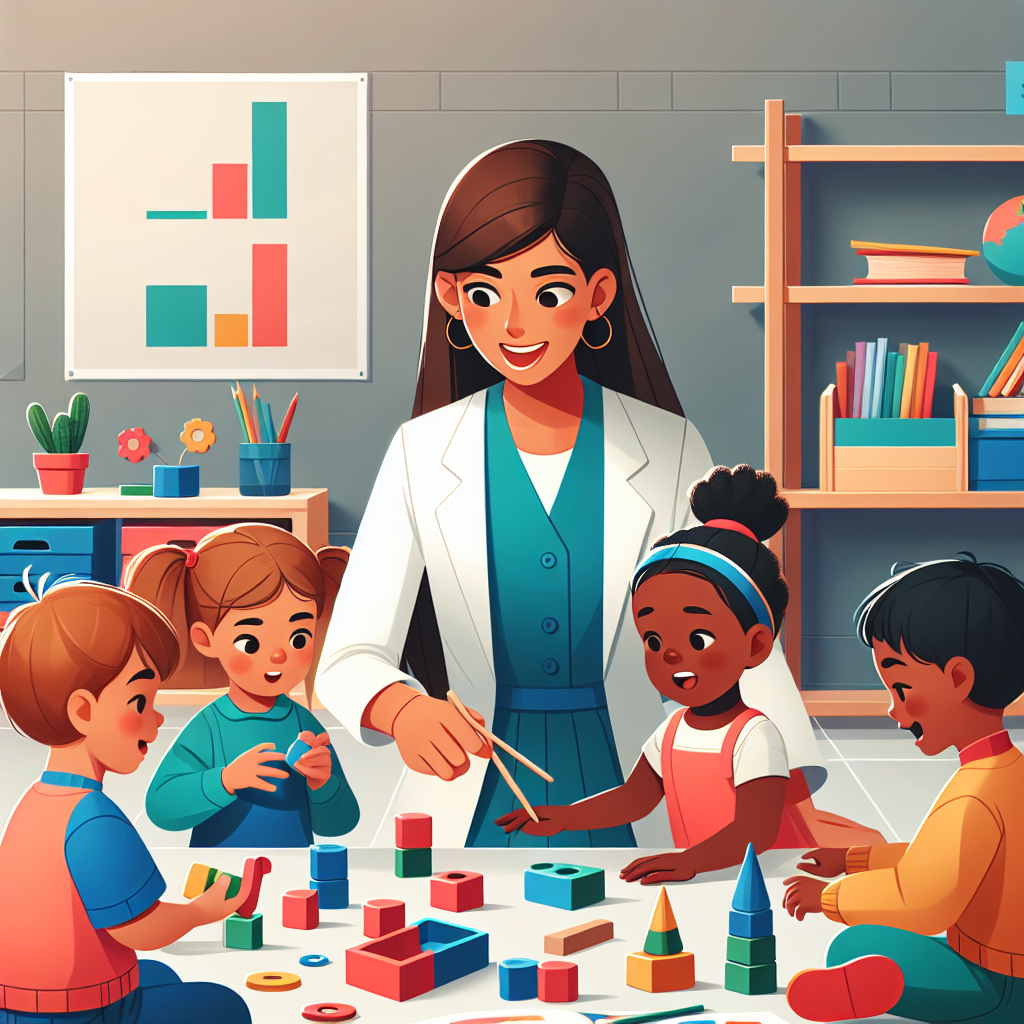
Preschool Pioneers: Identifying Learning Disabilities Before They Impact Growth
Introduction
In an era marked by rapid developmental milestones, the importance of early childhood education cannot be overstated. The foundational years, specifically those spent in preschool, set the trajectory for lifelong learning and emotional well-being. However, hidden beneath the joyous chaos of finger painting and storytime can lie learning disabilities that, if undetected, can significantly impact a child’s growth. This article, Preschool Pioneers: Identifying Learning Disabilities Before They Impact Growth, delves deeply into the critical role that early identification plays in nurturing children’s potential. Understanding and addressing learning disabilities early is not just beneficial; it is essential for fostering an inclusive and supportive learning environment where all children can thrive.
The Importance of Early Detection
Why Early Identification Matters
Research consistently shows that early intervention can dramatically alter the developmental trajectory for children with learning disabilities. According to the National Institute of Child Health and Human Development, the earlier these disabilities are identified, the more effective the interventions will be. Early identification allows educators and parents to tailor educational strategies, ultimately enabling children to develop vital skills.
The Consequences of Delay
Delaying the identification of learning disabilities can result in long-term academic challenges, including poor performance, low self-esteem, and increased behavioral issues. Data from a study by the Center for Learning Disabilities indicates that children who experience undiagnosed learning disabilities are significantly more likely to face academic struggles as they progress through school.
Understanding Learning Disabilities
Types of Learning Disabilities
Learning disabilities can broadly be classified into several categories:
- Dyslexia: Difficulty with reading, spelling, and writing.
- Dyscalculia: Challenges with math concepts and number sense.
- Dysgraphia: Difficulty with handwriting and visual-motor skills.
- Auditory Processing Disorder: Trouble processing sounds, affecting language skills.
Understanding these categories helps educators and parents recognize potential signs of learning disabilities in preschoolers.
Signs to Look For
In preschool-aged children, identifying learning disabilities often involves observing specific behaviors:
- Reading Difficulties: Struggling with rhyming, recognizing letters, and linking sounds to letters.
- Numerical Challenges: Difficulty counting objects or recognizing simple patterns.
- Motor Skills Issues: Clumsiness or fine motor difficulties, impacting writing or manipulation of small objects.
Recognizing these early signs can be transformative, leading to timely intervention and support.
Case Studies: Learning Disabilities in Action
Case Study 1: The Power of Early Intervention
Background: A preschool in California noticed that a child named Jack struggled with recognizing letters and sounds compared to his peers.
Intervention: The preschool implemented a tailored phonics program focusing on auditory processing strategies. They also collaborated closely with the child’s parents, providing them with resources and activities to reinforce learning at home.
Outcome: Within six months, Jack showed significant improvement in letter recognition and phonetic skills, demonstrating how early intervention can shore up progress.
Case Study 2: Collaborative Efforts in Identifying Dyscalculia
Background: Emily, a bright and energetic preschooler, displayed difficulties with basic number concepts, often confusing numbers and shapes during activities.
Intervention: Her preschool engaged a special education consultant to observe her interactions and assessments. Together, they designed a hands-on learning approach using manipulatives to build her numerical comprehension.
Outcome: Emily flourished in this supportive environment, showcasing how collaborative efforts between parents, educators, and specialists can help identify and address learning disabilities.
Creating an Inclusive Preschool Environment
Building Awareness Among Educators
Training teachers to recognize signs of learning disabilities is critical. Regular workshops and professional development sessions can equip educators with the knowledge necessary to identify potential concerns early, contributing to a culture of awareness and support.
Implementing Assessment Tools
Utilizing reliable assessment tools can help preschools to systematically monitor children’s developmental progress. Dictating a standardized approach can ensure that no child slips through the cracks. Tools such as:
| Assessment Tool | Focus Area |
|---|---|
| Developmental Checklists | Overall developmental milestones |
| Observational Strategies | Social and emotional behaviors |
| Standardized Tests | Academic readiness |
By employing these tools strategically, preschools can gather objective data to inform their practices.
Family Involvement
Engaging parents in the identification process is paramount. Providing workshops and informational sessions for families can foster a collaborative atmosphere where parents feel empowered to advocate for their children’s educational needs.
The Role of Technology in Early Detection
Digital Screening Tools
The advent of technology has introduced innovative tools for identifying learning disabilities:
- Apps for Monitoring Progress: Various educational apps can help track literacy and numeracy skills in preschoolers.
- Online Assessment Platforms: Many platforms offer engaging assessments that can alert educators to developmental discrepancies.
Leveraging technology can enhance the tracking and identification process, making it more efficient and engaging for both educators and students.
Conclusion
Preschool Pioneers: Identifying Learning Disabilities Before They Impact Growth underscores the vital necessity of early intervention in a child’s educational journey. By recognizing the signs early, employing effective strategies, and fostering collaboration among parents, educators, and specialists, we can create an inclusive environment that empowers every child to flourish.
As we look towards the future, let us make a collective effort to prioritize early identification of learning disabilities, ensuring that every child’s potential is nurtured and their growth is supported. By investing in early detection and intervention, we can turn challenges into strengths, paving the way for a brighter tomorrow for all learners.
FAQs
1. What are learning disabilities?
Learning disabilities are neurological disorders that affect the brain’s ability to receive, process, store, and respond to information. They can impact various academic skills, including reading, writing, and math.
2. How can I tell if my child has a learning disability?
Common signs include struggles with basic reading or math skills, difficulty following instructions, or issues with fine motor skills. If you notice persistent challenges, it’s advisable to seek professional evaluation.
3. What steps can preschools take to identify learning disabilities?
Preschools can implement regular assessments, provide professional development for educators on identifying disabilities, and engage families in monitoring their child’s progress.
4. How effective is early intervention for learning disabilities?
Research shows that early intervention can drastically improve outcomes, helping children develop the necessary skills and confidence to succeed academically and socially.
5. What resources are available for parents?
Numerous resources exist, including local support groups, online forums, educational websites, and referral services to specialists in learning disabilities.
6. Are there specific programs designed for children with learning disabilities?
Yes, many early childhood programs are specifically designed to accommodate children with learning disabilities, offering personalized curriculums and tailored teaching strategies.
By fostering a culture of awareness and early identification, we can embrace the spirit of Preschool Pioneers: Identifying Learning Disabilities Before They Impact Growth, ensuring that every child has the chance to realize their true potential.











